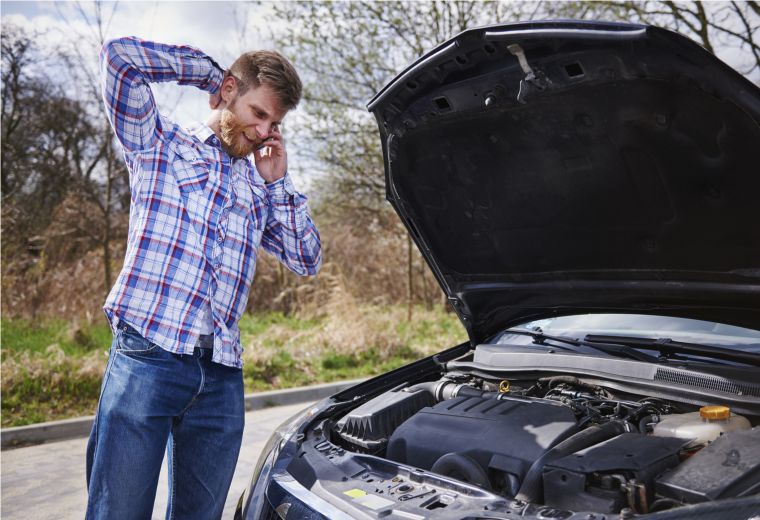If your car won’t start right after turning off, the problem could be a faulty alternator or starter. This issue is commonly caused by a weak battery, Car Won’t Start Right After Turning off, a damaged starter, or a faulty alternator.
When the car is turned off, the alternator is supposed to charge the battery, but if it’s not working properly, the battery may not have enough power to start the car again. Additionally, a damaged starter could be the cause, preventing the engine from turning over.
It’s important to have these issues diagnosed and repaired by a qualified mechanic to ensure your car starts reliably. Ignoring these problems can lead to more extensive and expensive repairs down the line.Car Won’t Start Right After Turning off
Battery Issues
A car that won’t start immediately after being turned off can be a frustrating situation. There are several potential causes for this issue, but one of the most common culprits is related to the car’s battery. Battery issues can range from a dead battery to corroded connections, and understanding these factors can help in diagnosing and resolving the problem effectively. Let’s delve into the battery-related reasons why your car may fail to start right after being turned off.
Dead Battery
A dead battery is one of the primary reasons why a car may not start right after being turned off. This can happen due to various factors such as leaving lights on, extreme temperatures, or an aging battery. When the battery is unable to provide sufficient power, the car may struggle to start or fail to turn over entirely. Regularly checking the battery’s condition and ensuring it is properly charged can prevent this issue.
Corroded Battery Connections
Corroded battery connections can also lead to starting problems. The buildup of corrosion on the battery terminals and cables can interfere with the flow of electricity, preventing the car from starting smoothly. Cleaning the battery terminals and cables with a mixture of baking soda and water, as well as using a wire brush, can help eliminate corrosion and ensure a secure connection for proper starting.
Fuel System Problems
One of the most frustrating issues a car owner can experience is when their car won’t start immediately after being turned off. Often, this problem can be attributed to fuel system problems. The fuel system is vital for the proper functioning of the car, and any issues within it can lead to starting problems.
Empty Fuel Tank
An empty fuel tank is one of the most common reasons why a car might not start immediately after being turned off. It’s essential to ensure that the fuel tank has an adequate supply of gas to power the engine. When the tank is empty, the engine lacks the fuel needed to start, resulting in a no-start situation.
Clogged Fuel Filter
A clogged fuel filter can also contribute to starting issues. The fuel filter is responsible for removing impurities from the fuel before it reaches the engine. Over time, the filter can become clogged, restricting the flow of fuel to the engine. This can lead to starting problems, as the engine is unable to receive the necessary fuel to ignite.
Ignition System Malfunctions
One of the most frustrating experiences for car owners is when their vehicle won’t start right after turning it off. This can leave you stranded and wondering what could be causing the problem. In many cases, the culprit is a malfunction in the car’s ignition system. The ignition system is responsible for starting the engine and consists of various components that work together to create the spark needed to ignite the fuel. In this section, we will explore two common ignition system malfunctions that can cause a car to fail to start: a defective ignition switch and a faulty starter motor.
Defective Ignition Switch
The ignition switch plays a crucial role in the overall operation of the ignition system. It is the device that allows you to start the engine by providing power to the starter motor, ignition coil, and other components. However, over time, the ignition switch can wear out or become damaged, leading to malfunctions. Common signs of a defective ignition switch include difficulty in turning the key or the engine not engaging when the key is turned. If you suspect a problem with the ignition switch, it is crucial to have it inspected and replaced by a qualified mechanic. Ignoring this issue can lead to further complications and potentially leave you stranded.
Faulty Starter Motor
The starter motor is another critical component of the ignition system. Its role is to turn the engine over, allowing it to start. However, a faulty starter motor can prevent the engine from cranking, resulting in a car that won’t start. A common sign of a faulty starter motor is a clicking noise when you turn the key. This indicates that the motor is trying to engage but is not able to do so properly. Another sign is a grinding noise, which suggests that the starter motor’s gears are not meshing correctly. If you experience any of these symptoms, it is essential to have the starter motor inspected and replaced if necessary. Ignoring a faulty starter motor can lead to further damage to the engine and other components.
In conclusion, ignition system malfunctions can be a common cause of a car failing to start right after turning off. Two common culprits are a defective ignition switch and a faulty starter motor. If you suspect that either of these components is causing the problem, it is crucial to have your car inspected and repaired by a qualified mechanic to prevent further complications.

Car Won’t Start Right After Turning off
Electrical System Faults
When your car won’t start right after turning off, it could be due to various electrical system faults. These faults can interrupt the flow of electricity within your car’s engine, preventing it from starting up properly. In this article, we will discuss two common electrical system faults that could be the cause of your car’s starting issues: a bad alternator and a failed starter relay.
Bad Alternator
A bad alternator can prevent your car from starting after it has been turned off. The alternator is responsible for charging the battery while the engine is running. However, if the alternator is faulty, it may not be able to supply enough power to the battery, causing it to drain completely. When this happens, your car won’t have enough power to start again, even if the battery is relatively new.
Here are some signs that your alternator may be the culprit:
- The battery light on your dashboard is illuminated
- Your headlights are dim or flickering
- You hear strange noises coming from the engine
- Your car’s electrical components, such as power windows and radio, are not functioning properly
If you suspect that your alternator is to blame for your starting issues, it is important to have it checked and possibly replaced by a professional mechanic. Ignoring a bad alternator can lead to further damage to your car’s electrical system.
Failed Starter Relay
Another electrical system fault that can cause your car not to start right after turning off is a failed starter relay. The starter relay is responsible for sending electrical current from the battery to the starter motor, which in turn starts the engine. If the starter relay fails, it will not be able to activate the starter motor, resulting in a non-starting engine.
Here are some signs that your starter relay may be the issue:
- Your car makes a clicking noise when you turn the key in the ignition
- The engine cranks but does not start
- Your car’s electrical system behaves erratically
If you suspect that your starter relay is faulty, it is recommended to have it inspected and replaced if necessary. A professional mechanic will be able to diagnose the problem accurately and ensure that your car starts reliably after turning off.
Mechanical Issues
When your car won’t start right after turning it off, there may be several mechanical issues that could be causing the problem. It’s important to identify and address these issues promptly to avoid any further damage to your vehicle. In this section, we will explore two common mechanical issues that could be the culprit behind your car’s failure to start.Car Won’t Start Right After Turning off
Faulty Timing Belt
A faulty timing belt can prevent your car from starting immediately after you turn it off. The timing belt plays a crucial role in synchronizing the engine’s camshaft and crankshaft, ensuring the valves open and close at the right time. If the timing belt is damaged or worn out, it can cause the engine’s timing to be off, resulting in difficulties starting the car.Car Won’t Start Right After Turning off
Signs of a faulty timing belt:
- Engine misfires or stalls Car Won’t Start Right After Turning off
- Unusual noises coming from the engine
- Engine refusing to start Car Won’t Start Right After Turning off
- Visible wear or damage on the timing belt
Damaged Starter Gear
The starter gear, also known as the starter motor, is responsible for initiating the engine’s combustion process. If the starter gear is damaged or worn out, it may not engage properly when you try to start the car, leading to a failure to start the engine right after turning it off.Car Won’t Start Right After Turning off
Common signs of a damaged starter gear:
- Clicking noise when you turn the key in the ignition
- Grinding sound during startup Car Won’t Start Right After Turning off
- Slow or weak cranking of the engine
- Smell of burning rubber Car Won’t Start Right After Turning off
If you suspect a faulty timing belt or damaged starter gear to be causing your car’s starting issues, it is recommended to have a professional mechanic inspect and diagnose the problem. They will be able to provide the necessary repairs or replacements to get your car back on the road.Car Won’t Start Right After Turning off
Car Won’t Start Right After Turning off

Car Won’t Start Right After Turning off
Frequently Asked Questions For Car Won’t Start Right After Turning Off
Why Won’t My Car Start Immediately After I Turn It Off?
After turning off your car, the engine needs time to cool down. It’s normal for it not to start immediately as the hot engine components can result in vapor lock or fuel flooding. Give it a few minutes to cool down before attempting to start it again.Car Won’t Start Right After Turning off
What Causes A Car To Not Start Right After Being Turned Off?
There are several possibilities if your car won’t start immediately after being turned off. It could be due to a fault in the ignition system, fuel delivery issues, a problem with the starter motor, or a drained battery. It’s recommended to have a mechanic diagnose the issue for an accurate solution.Car Won’t Start Right After Turning off
How Long Should I Wait Before Starting My Car Again?
It’s generally advised to wait at least 15 minutes before starting your car again after turning it off. This allows the engine temperature to decrease and prevents potential issues like vapor lock or flooding. However, if you suspect a mechanical problem, it’s best to consult a professional.Car Won’t Start Right After Turning off
Conclusion
Based on the possible reasons why your car won’t start immediately after turning off, it is important to consider maintenance issues, such as a faulty ignition switch or a drained battery. Additionally, other factors like a malfunctioning fuel pump or a problem with the starter motor could also be causing the issue.Car Won’t Start Right After Turning off
By addressing these potential problems and performing regular vehicle check-ups, you can ensure that your car starts up smoothly every time. Remember, a well-maintained car is a reliable one.

